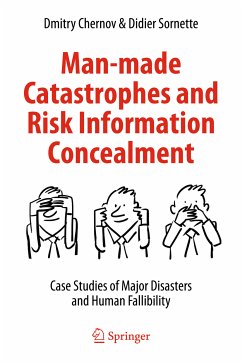In the book, the term 'concealment' is used to represent the two distinct behaviors uncovered in the investigations: (i) facts and information about an organization and its functioning being hidden from those that need them - here the concealment can be due to various factors, such as complexity and miscommunication, to name but two - and (ii) the conscious and deliberate action of keeping important information secret or misrepresenting it. This second meaning makes up a surprisingly important part of the evidence presented.
Accordingly, emphasis has been put on this second aspect and the approach is more pragmatic than academic, remaining focused on evidence-based practical and useful factors. It raises awareness and provides valuable lessons for decision- makers, risk specialists and responsible citizens alike. This work is also intended as a fact-based reference work for future academic and scholarly investigations on the roots of the problem, in particular regarding any psychological or sociological modeling of human fallibility.
Dieser Download kann aus rechtlichen Gründen nur mit Rechnungsadresse in A, B, BG, CY, CZ, D, DK, EW, E, FIN, F, GR, HR, H, IRL, I, LT, L, LR, M, NL, PL, P, R, S, SLO, SK ausgeliefert werden.









